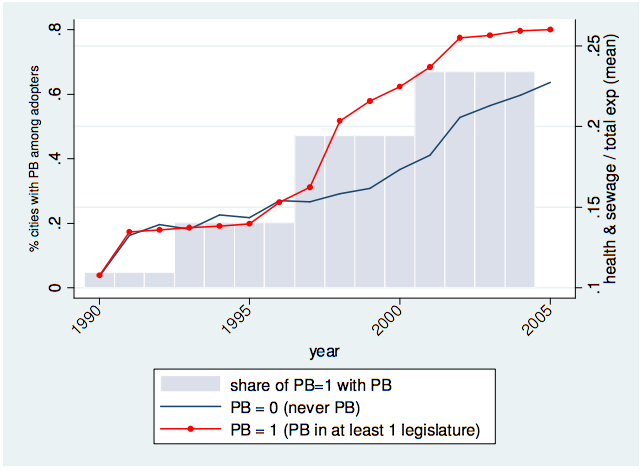The article by @MaryAnastasiaOG in the @WSJ depicting participatory budgeting (PB) as a “way to circumvent election results”, conflating it with mob rule is unfortunate. Beyond offending Latin Americans, the author picked a public policy whose history she is unfamiliar with. https://twitter.com/MaryAnastasiaOG/status/1348347997407637507
Let me start with the results of PB: first, serious research shows that PB in Brazilian municipalities led to increased investments in health and sanitation, ultimately reducing infant mortality. A summary of some of these studies can be found here https://buff.ly/2LArHRw
Second, municipalities that adopt PB have substantially higher levels of tax compliance, leading to an increase of nearly 40% in their investment capacity: that’s more money for services to a population in need. Link to research here https://buff.ly/3qecV1X
Now, for the author’s argument that PB is a way to circumvent elections, a bit of context and history might be helpful:
One year prior to the first PB implementation (1989), the new Constitution laid down the principles of Brazilian democracy as representative and participatory, revealing societal expectations towards more participation following a long period of military rule.
The mayor of Porto Alegre was elected in 1988 based on a program with participatory democracy at its heart: not implementing mechanisms of participatory democracy would be failing to meet commitments on the basis of which he was elected.
While some authors claim that PB was in part implemented to garner political support to approve the budget (given the Mayor’s minority in the City Council), PB never undermines the prerogative of city councillors to approve the budget.
Also important: the budget allocated to PB is minimal if compared to the total budget (rarely exceeding more than 2.5%-5.0% of the total), and even this small part still has to be approved by the councillors.
In any case, describing popular engagement with budget issues as “political operatives (...) to apply pressure to the council” feels elitist at best, and undemocratic at worst: citizens have the right to and should engage on budget issues that affect them.
Finally, the term “Latin Politics” is a useless and offensive analytical construct, that fails to recognize the diversity of countries, institutions, and political views in the continent. Happy to discuss more if needed.

 Read on Twitter
Read on Twitter


